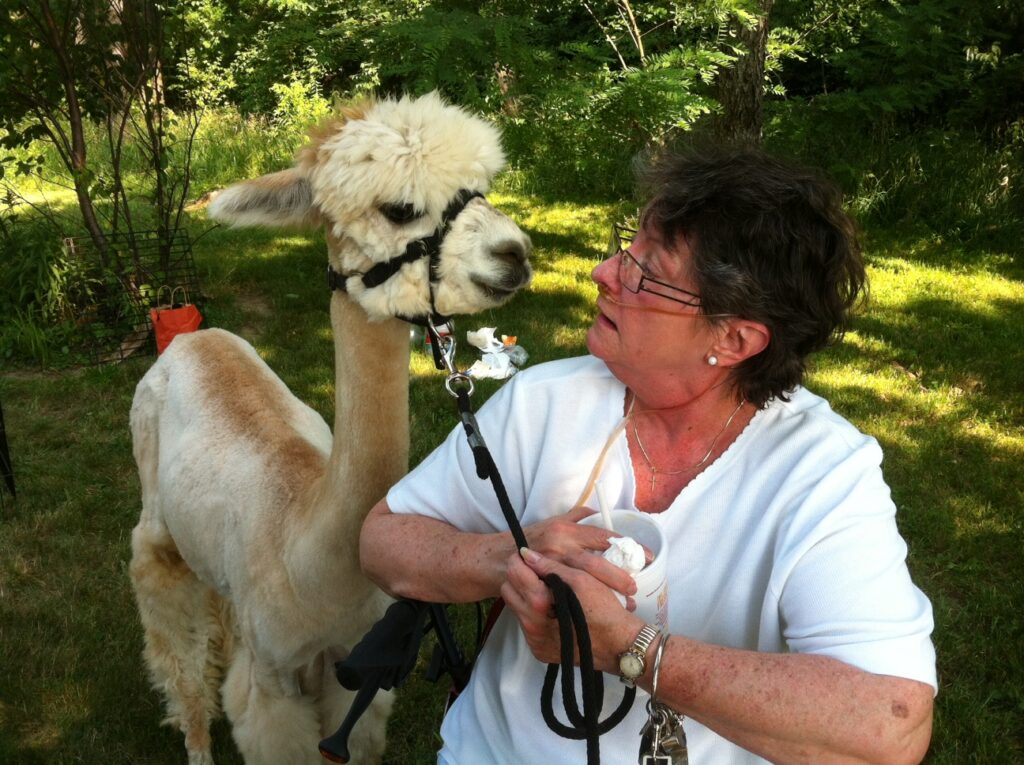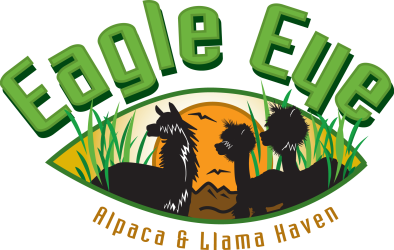

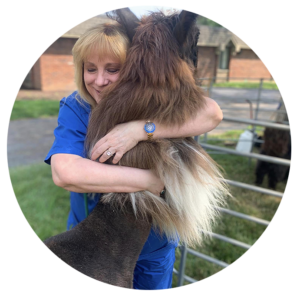
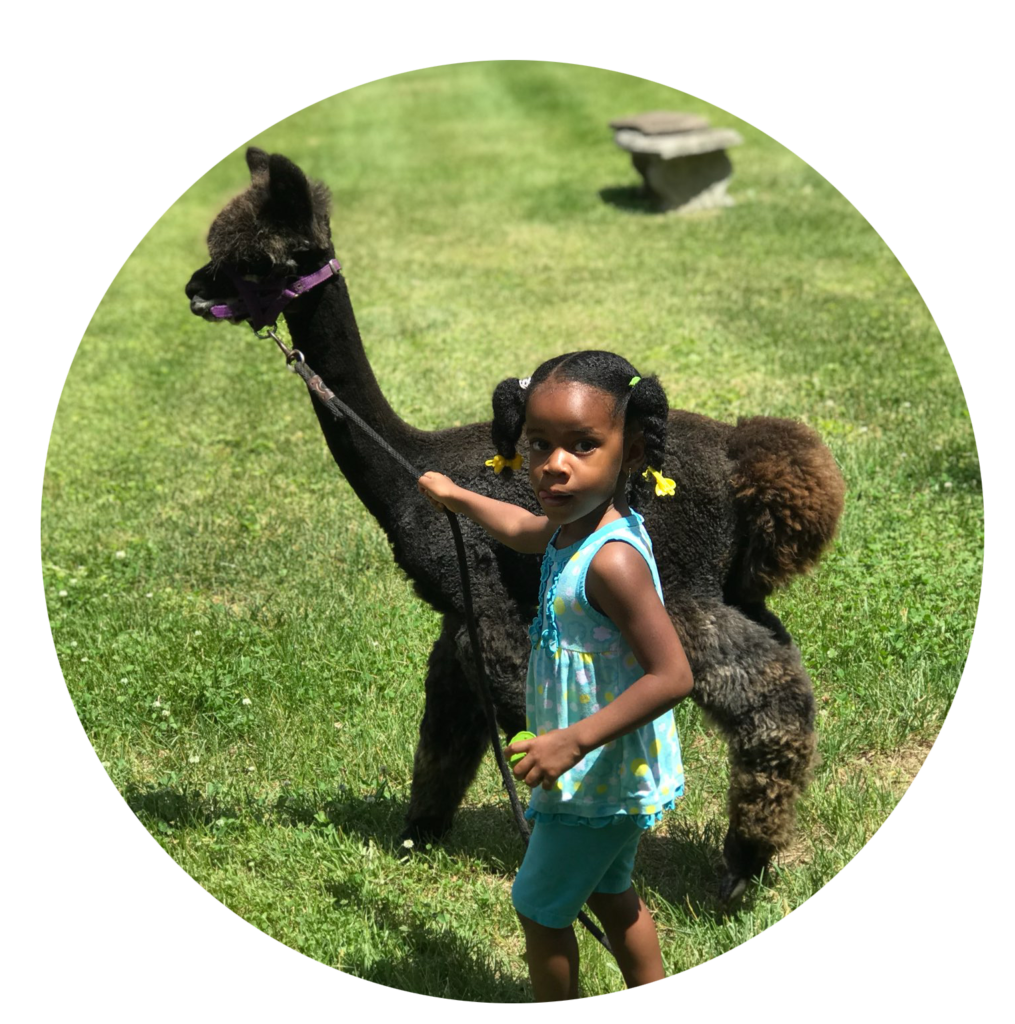
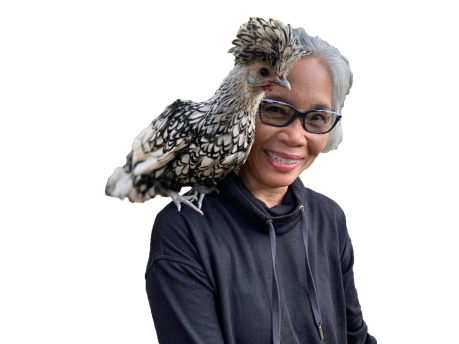
About Us
Eagle Eye Alpaca and Llama Haven is a St. Louis based traveling petting zoo made up of Alpacas and Llamas. Denise Hollinshed, a veteran journalist and business executive, is the chief executive officer and president of the company.
This unique petting zoo transports Llamas and Alpacas, Dwarf Nigerian Goats, Angora and Mini Rex Rabbits to children and adult day care centers, elementary schools, birthday parties, neighborhood fairs, parades, corporate events, family reunions, churches and other community events. Children and adults who interact with these lovable animals cherish the experience of petting, riding and feeding them.
The primary reasons for introducing Alpacas and Llamas to children and adults is to educate, entertain and comfort children and older adults throughout the metropolitan St. Louis area.
Contact Us at: (314) 520-2028 or [email protected].
•
We Are Members Of:
Alpaca Registry Inc. | www.alpacaregistry.com
Illinois Lama Association | www.illinoisllamas.org
Alpaca Owners and Breeders Association | www.alpacainfo.com
The Midwest Alpaca Owners and Breeders Association | www.mopaca.org
Alpaca and Llama Show Association | www.alsashow.net
Where To Buy Alpacas And Llamas:
Wier World Llamas and Alpacas | www.llamasofwierworld.com
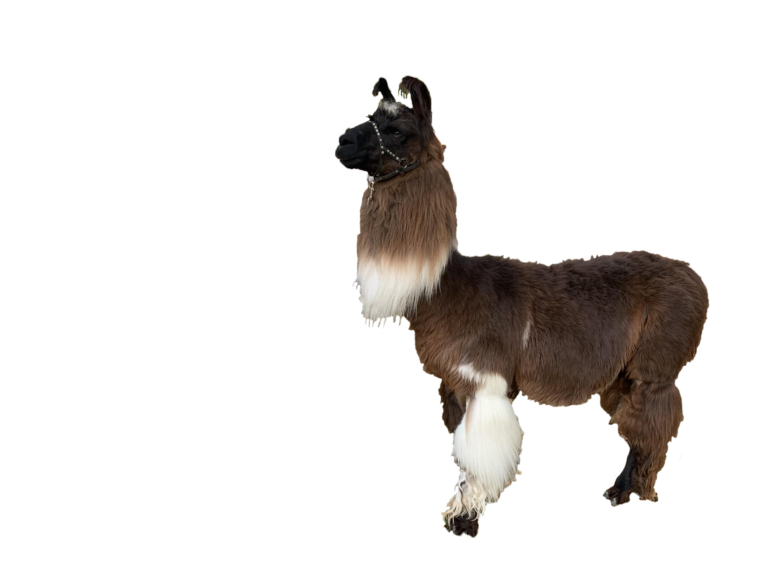

Our petting zoo is for the benefit of all people!
A few facts we would like to share:
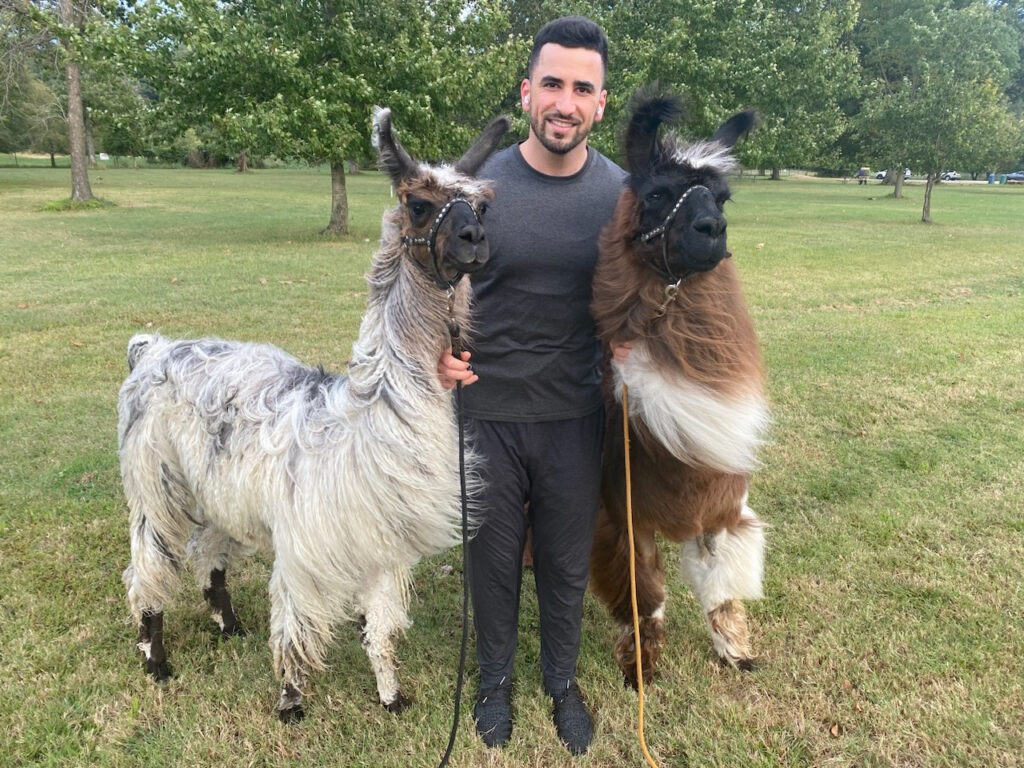
ALPACAS and LLAMAS
In general, Alpacas and Llamas are odorless animals. They are unique because they have three stomachs. Most people would describe them as curious, intelligent and friendly animals.
The Alpaca is a member of the Camelid family which also includes the llama, vicuna, guanaco and camel. Native to the high Andes plateaus of Peru , Chile and Bolivia , they have been imported to the U.S. since 1984.
The Alpaca, unlike the Llama which is used primarily as a pack animal, is raised for its luxurious fine fiber. Both llamas and Alpacas have the ability to spit, but do not do so unless provoked. Alpacas are generally smaller then llamas and have more fiber around their face.
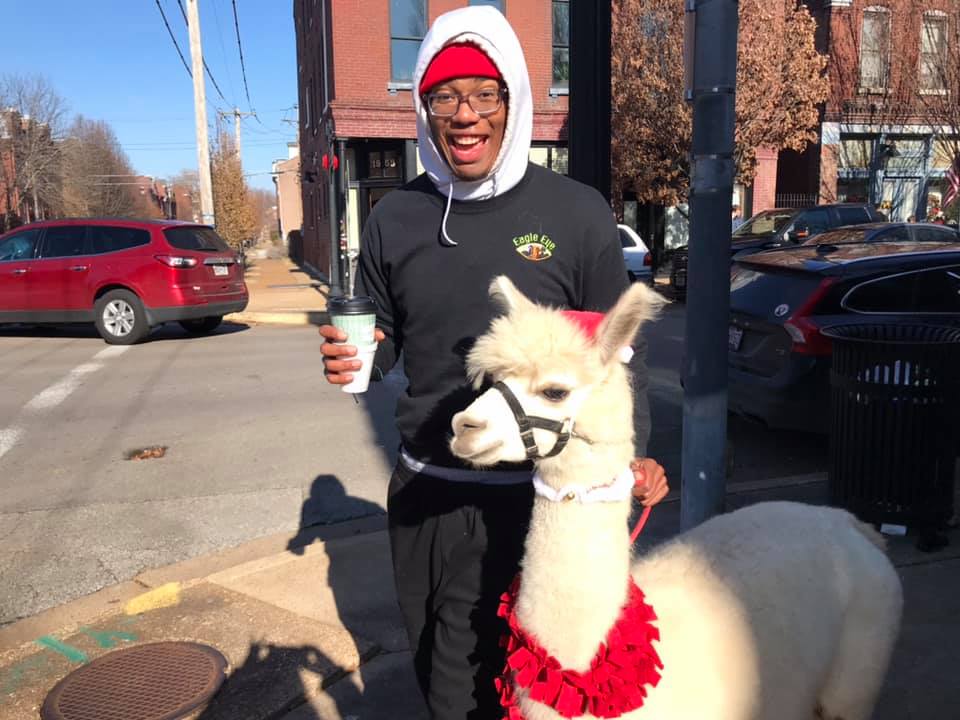
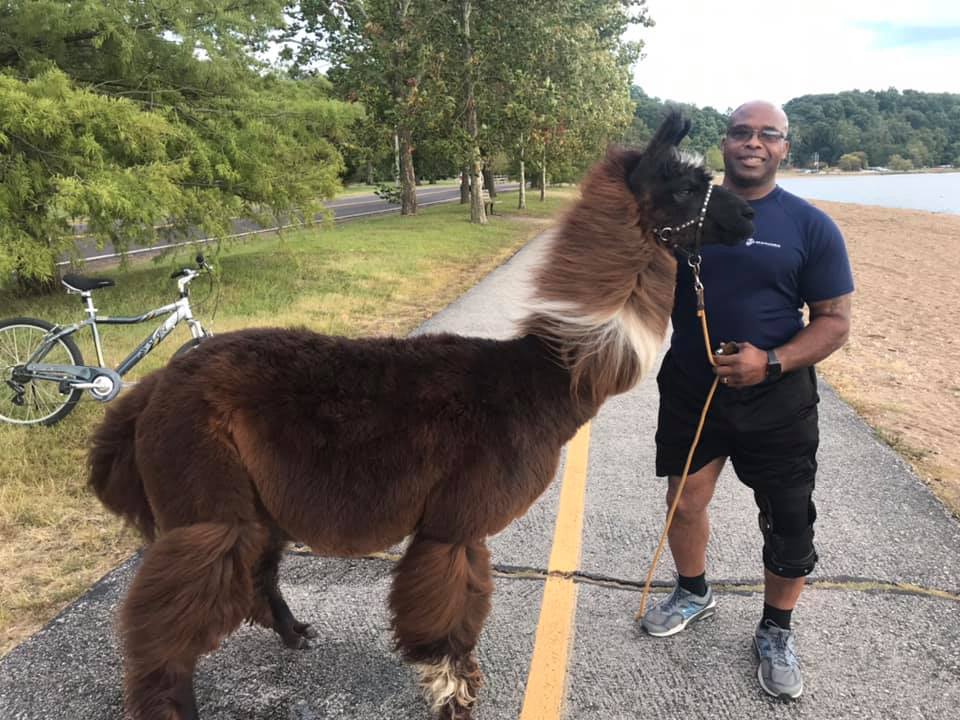
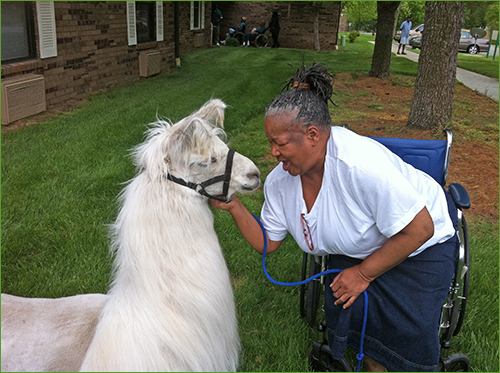
PSYCHOLOGICAL BENEFITS
In general, Alpacas and Llamas can provide peace to those who are distressed or challenged with life’s troubles. Alcapas and Llamas can help us emotionally, psychologically, and socially. They help us: Adjust to serious illness and death
Children often turn to their pet for comfort if a friend or family member dies or leaves the family. Grieving adults who did not have a close source of human support were also found to have less depression if they had a pet.
Relax and reduce everyday stress
Pets can help us relax and focus our attention away from our problems and worries. We do not even need physical contact to appreciate this. Feeding the Alpacas and Llamas can be very soothing. Petting them is relaxing.
Have physical contact
This ability to have something to touch and pet is very important. More and more studies show how important touch is to our physical and emotional health.
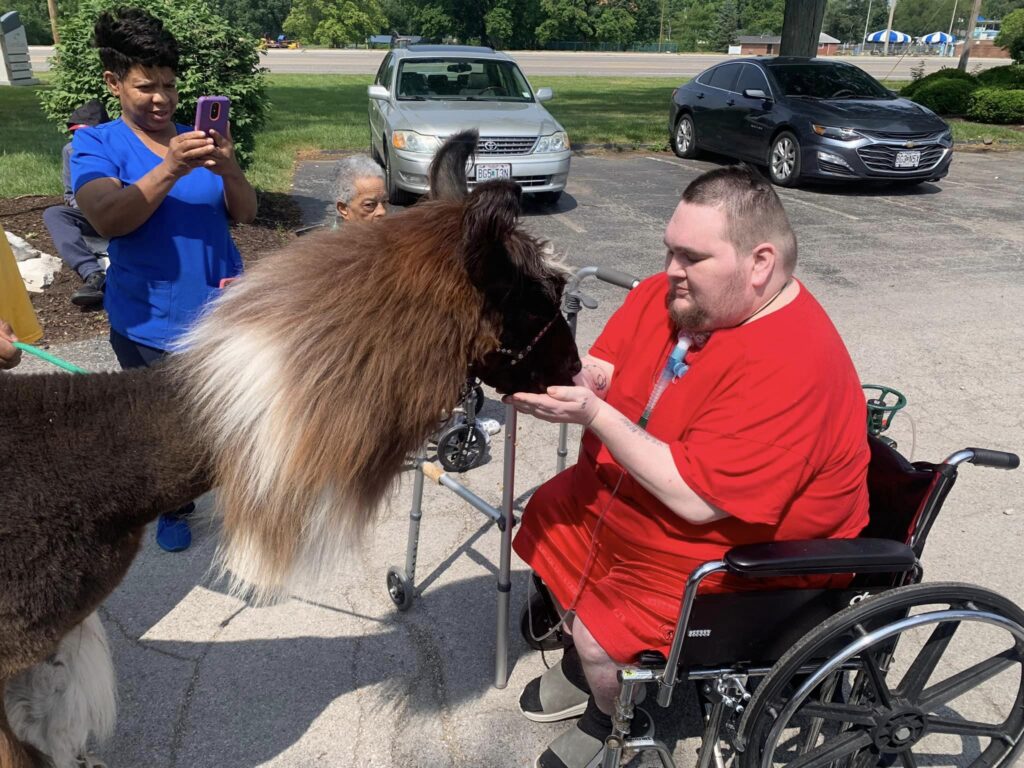
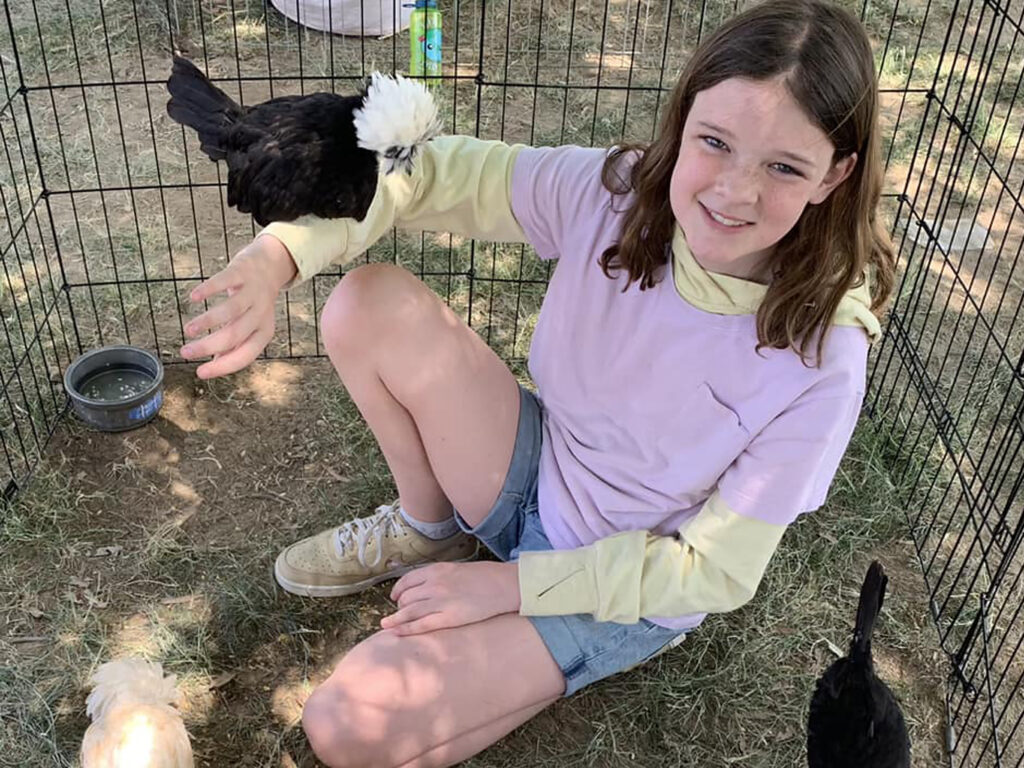
LIFT YOUR MOOD
Pets decrease our feelings of loneliness and isolation by providing companionship for all generations. Certainly for residents of nursing homes this is true, but it is also true for the staff and volunteers there as well.
Residents of nursing homes are more apt to smile, talk, reach out to people and objects,be attentive and alert, and experience a greater sense of well-being and less depression if animals are present in the facility.
Feel less lonely
Pets can help ease the sense of
loneliness or isolation we feel.
Have something to care for.
Everyone needs to feel needed and have something to care for. Many elderly citizens or people living alone will tell you their pet gives them a reason for living.
